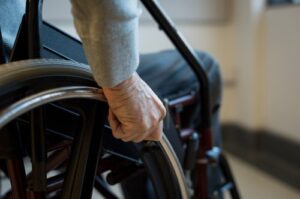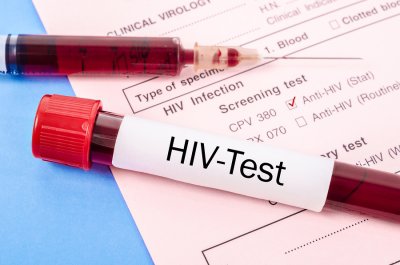-
Is Your Accident Settlement Offer Too Low?
Even if you have been involved in a previous car accident in the Baltimore area, you may find it overwhelming to deal with the many details of securing compensation. It’s a good idea to speak with an injury lawyer even if you aren’t sure whether you will file an accident injury lawsuit. Your lawyer has plenty of experience dealing with insurance carriers. He or she will help you secure a generous accident settlement.

Initial Offer
It’s to be expected that the first accident settlement offer you receive will be the lowest amount that the insurance adjuster is authorized to offer. Insurance is a business and, as with any business, the insurance adjuster’s goal is to improve the company’s bottom line. Unfortunately, far too many car accident survivors take the first offer they get because they’re unaware that it’s negotiable or because they lack negotiating skills. This is another benefit of hiring an injury lawyer; he or she knows the most effective strategies to use to negotiate with the insurance adjuster.
Medical Expenses
Before deciding whether subsequent settlement offers are too low, you’ll need an estimate of your losses. Calculating your losses can be more difficult than you might think, but your lawyer can handle this task for you. The settlement offer should be substantial enough to fully cover your out-of-pocket medical costs such as diagnostic tests, surgeries, hospitalization, physical therapy sessions, and pharmacy co-pays. Depending on the nature and extent of your injuries, you might also require durable medical equipment and perhaps the services of a home health aide when you leave the hospital.
Property Damage
Your vehicle may have sustained minor damage or it might be a total loss; either way, you deserve full compensation for the damage. The settlement offer should be high enough to restore your car to the condition that it was in prior to the crash. If the vehicle was a total loss, your lawyer will ask for a settlement offer that includes the fair market value of the car. Your settlement offer might even include your rental car or other transportation costs that you incurred after the crash. Keep in close contact with your lawyer throughout the process and advise him or her of any new expenses you incur.
-
How Long Will My Disability Benefits Last?
Once your lawyer in Baltimore helps you secure your disability benefits , you should continue to receive them for as long as you meet the eligibility criteria. There are a few things that can cause your benefits to be terminated. First, know that while on disability, you’re responsible for promptly reporting whether your medical condition improves or whether you return to work. If your health improves to the point at which the Social Security Administration (SSA) no longer considers you to be disabled, then your benefits will be terminated. The SSA will periodically review your case to assess whether you are still disabled.
It’s possible to return to work without automatically forfeiting your disability benefits. The SSA refers to this as a “work incentive.” It’s designed to encourage benefit recipients to test their ability to work, while still having the safety net of benefits. If you are able to return to a level of work that gives you substantial earnings, then you’ll no longer receive benefits. How the SSA defines “substantial earnings” is subject to change over time—you can consult your lawyer about the current regulations.

-
Can I File a Wrongful Death Claim After Someone Runs Over My Dog?
Pets are regarded as property in the eyes of the law. For years, pet parents have been distressed to find that their options for legal recourse do not sufficiently reflect the significant, long-lasting emotional trauma of losing a pet to someone else’s negligence. Some states have slowly begun to change this approach, including Maryland. If you live in Baltimore, you can talk to an accident attorney to find out if you could file a lawsuit against the person who caused the car accident that killed your dog.

Consulting an Injury Lawyer
The sudden loss of a beloved member of the family can interfere with your clarity of thought. As difficult as it is to discuss the event, you do need to see a lawyer promptly. He or she will review your case and evaluate the value of the claim. Depending on the circumstances, you may wish to settle the case out of court. Your attorney can contact the negligent driver or the insurance carrier to explain the monetary value of your loss, and offer to settle the case instead of filing a lawsuit. If compensation isn’t forthcoming, you can take legal action.
Filing a Lawsuit
You can only sue for wrongful death if a human was killed. However, you can still file a civil lawsuit against the person who killed your pet. Your lawyer will present evidence to prove that the defendant’s negligence directly caused the car accident that killed your dog. Once the defendant is served with the paperwork, it’s quite possible that he or she will be more willing to settle the case out of court.
Assessing Damages
A key component of any lawsuit is the assessment of damages. In many jurisdictions, dog owners are limited in the amount of compensation they can recover. A court will typically award the amount the dog would cost, plus related veterinary bills. The following factors may play a role in determining the dog’s value.
- Purchase price
- Breed
- Training
- Age
- Health (prior to the car accident)
- Special characteristics of value
- Usefulness
If the dog was a champion show dog, a service dog, or specially trained law enforcement dog, the value would increase. Recently, Maryland courts have ruled in favor of allowing bereaved puppy parents to secure compensation for their emotional distress. Claims of mental anguish can be substantiated by records that show you sought mental health counseling in the wake of the death.
-
Does HIV/AIDS Qualify for Social Security Disability Payments?
Human immunodeficiency virus (HIV) is a chronic, incurable disease that attacks the immune system. This leaves patients vulnerable to other serious infections and diseases. Acquired immunodeficiency syndrome (AIDS) is the end stage of HIV infection. Because HIV can take years to progress, patients might not qualify for Social Security disability benefits for a while. A lawyer in Baltimore who handles Social Security disability claims can provide personalized guidance based on the factors that are unique to each case.

When HIV/AIDS Qualifies for Disability Benefits
The primary infection results in acute, flu-like symptoms that typically last no longer than a few weeks. After this point, the patient enters the clinical latent infection stage, also known as chronic HIV. If the patient does not take HIV medications, the stage may last 10 years before progressing to AIDS. With medications, it may take a few decades before reaching the end-stage. During the chronic HIV stage, patients often experience few to no symptoms. This means they might not be classified as disabled. To qualify for Social Security disability benefits before HIV progresses to AIDS, patients must prove that they have one or more “opportunistic” illnesses that arise as a result of the suppressed immune system.
How to Prove Disability
HIV/AIDS patients must first prove that they were diagnosed with HIV/AIDS. This is easily accomplished via medical records. The next step is more complex. It involves sorting through the Social Security Administration’s “blue book,” or listing of official disability requirements. Patients would be well advised to consult a lawyer about these requirements before filing a claim. Here’s a brief, incomplete overview of the requirements:
- Bacterial infection, including multiple infections that required hospitalization
- Viral infection, including treatment-resistant shingles
- Fungal infection, including pneumonia caused by Pneumocystis fungi
- Protozoan or helminthic infection, including toxoplasmosis
- Cancer
- Skin or mucous membrane condition, including treatment-resistant lesions
- HIV encephalopathy with brain swelling that causes cognitive/physical impairment
- HIV wasting syndrome, with a loss of 10% or more bodyweight
- Diarrhea that requires intravenous hydration
Other illnesses can qualify. Consult a lawyer for further guidance.
How to Qualify Based on Limited Functional Capacity
Even if patients do not qualify under the disability listing, they may qualify for benefits based on their limited functional capacity. A residual functional capacity (RFC) rating determines whether a person can perform sedentary, light, or medium work. The SSA will probably consider a person disabled if he or she lacks job skills and higher education, and can only perform sedentary work.
-
Qualifying for Disability with Low Vision or Blindness
If you are living with low vision or blindness, you could qualify for Social Security disability benefits. However, the qualification requirements are strict and the procedure is lengthy, so it is helpful to have an experienced attorney in Baltimore to assist during the approval process. Here is what you need to know about applying for disability benefits for low vision or blindness.

How does the Social Security Administration define blindness?
In order to be considered blind under Social Security guidelines, you must not be able to correct your vision to better than 20/200 in your better eye for a period of at least 12 months or a period that is expected to last for at least 12 months. Alternatively, you can have a visual field of 20 degrees or less in your better for the same time period. If your vision doesn’t meet the definition of blindness but you have low vision that prevents you from working either alone or in conjunction with other health issues, then you still may be eligible for benefits.
What kind of disability benefits can I receive?
Two disability programs may provide benefits when you’re blind or have low vision: Social Security Disability Insurance (SSDI) and Supplemental Security Income (SSI). SSDI is based on credits earned while working, so you are only eligible for it if you have ever had a job, or in some cases, based on your parents’ or spouse’s earnings. SSI is not based on past employment, so you are eligible for these benefits even if you don’t have any work history.
How do I apply for benefits?
Although you can apply for benefits by contacting the Social Security Administration on your own, having a lawyer guide you through the process is recommended. Many people are rejected for benefits on their first try, and having an attorney can help you avoid an initial rejection and the need to appeal. An experienced attorney knows how to avoid application errors and build your case effectively.
-
What Really Happens During a Personal Injury Jury Trial?
After filing a car accident lawsuit in the Baltimore area, your injury attorney and the counsel for the defendant will likely negotiate a settlement. Most accident injury lawsuits are settled out of court. You’re not obligated to accept a settlement offer, of course, but if you do, it means you’ll accept a sum of money in exchange for dropping the lawsuit. If a settlement arrangement doesn’t work out, your lawyer will talk you through each step of the trial process.

Jury Selection
The first stage of a personal injury trial is the selection of the jurors. This is the process by which potential jurors are questioned about matters that might unfairly influence the verdict, such as their ideological beliefs, affiliations, and past experiences. The judge will have the opportunity to ask questions. Both parties have a limited number of challenges that they can use to dismiss certain jurors.
Statements
When the trial starts, your injury attorney and the lawyer for the defendant will make opening statements. These are brief, oral arguments that do not involve presenting physical evidence or questioning witnesses. Similarly, toward the end of the trial, both attorneys have the opportunity to make closing statements, which are final arguments.
Evidence
The main phase of the trial is the questioning and cross-examination of witnesses. The attorney for each party has the opportunity to call witnesses to the stand and question them under oath. After an attorney has questioned his or her own witness, the other attorney can question that witness in a process called cross-examination. Afterward, the first attorney may decide to question his or her witness again. This is known as re-direct examination, and it’s an opportunity to try to correct any problems that may have developed during the cross-examination. During the questioning of witnesses, the attorneys can also introduce physical evidence, such as medical records, photographs, or surveillance footage.
Jury Deliberation
Once all the witnesses have been questioned and the attorneys have made their closing arguments, the judge issues instructions to the jury. The jurors go to a private area for deliberation. This is a process that allows the jury to discuss the case and the evidence, and vote on a verdict. Jury deliberation may be very quick, lasting only an hour or two, or it may go on for days or weeks. If the jury does not find in your favor, you may decide to talk to your attorney about filing an appeal.
““
-
Spotlight on Occupational Diseases
Workers’ compensation cases aren’t always about injuries. Illnesses that occurred in the workplace may also be covered. If you believe you are the victim of an occupational disease, then contact an attorney to see if you should file a workers’ compensation lawsuit in Baltimore .
An occupational disease is a chronic condition that was caused by activities done at work. Some of the diseases that could be occupational in nature include cancer, respiratory issues, hearing loss, and skin diseases. In some instances, depression and anxiety can also fall into this category. If you have such an illness, an attorney can help you determine if your employer could be held responsible and if you should file a workers’ compensation claim. The amount of money to which are entitled depends on a number of different factors, including how your illness impacts your ability to do your job now and in the future and the cost of your medical bills. Your attorney can guide you through the process as well as any necessary workers’ comp appeals that follow your initial claim.

-
A Quick Look at Vocational Rehab
When you consult a workers’ compensation lawyer in Baltimore, you may hear the term “vocational rehabilitation.” Vocational rehab may be available as part of your workers’ comp benefits. Its purpose is to provide you with the services you need to re-enter the workforce. If you aren’t sure whether you qualify for vocational rehab or if you have a disagreement about the services being provided, your workers’ compensation attorney can assist you.

Candidates
Vocational rehab is available to injured employees who are unable to return to their previous work because of a qualifying workplace injury. Even when a person can no longer perform his or her previous work, he or she may be re-trained to fulfill another position. If you cannot return to work in any capacity, you may be a candidate for Social Security disability benefits instead of vocational rehab services. Before receiving vocational rehab services, the workers’ comp insurance carrier must agree that you are qualified to receive them. If your workers’ comp refuses vocational rehab services, talk to your lawyer. He or she may request a hearing to appeal this decision.
Services
The services you can receive are dependent upon your specific needs. Generally, vocational rehabilitation can include aptitude or skills testing, vocational counseling, job training, and job placement services. You might also receive on-the-job training when you begin your new job.
Practitioners
In Maryland, injured workers can turn to either a public or private rehabilitation counselor. Public counselors work through the Maryland Division of Rehabilitation Services (DORS). When you’re assigned a rehabilitation counselor, you must advise him or her of your workers’ comp claim.
Steps
Your vocational rehabilitation will begin with an in-depth interview with your assigned counselor. You can expect to answer plenty of questions about your background, including your education, certifications, professional licenses, and other credentials. You’ll also answer questions about your employment history, and any of your personal interests or hobbies that may influence the course of your future career. The counselor will consider your physical limitations or other aspects of your disability. Based on this information, your counselor will develop a personalized rehabilitation plan that includes actionable, specific goals. If you do not agree that the plan and its goals are appropriate for you, the plan will be submitted to a commissioner.
-
Mistakes to Avoid After a Car Crash
A car accident can be quite stressful, whether it’s a minor fender bender or a major wreck. The stressful nature of these situations increases the likelihood that drivers will make critical errors that may compromise their ability to obtain just compensation. To minimize this risk, it’s important that every driver understand exactly which steps to take and which mistakes to avoid because a car accident in Baltimore can occur at any time.

Apologizing to the Other Driver
In the U.S., society tends to view apologies with high regard. It seems natural to apologize in many situations and this isn’t always seen as being an admission of fault. However, in the wake of a car accident, simply saying “I’m sorry,” or “I didn’t see you over there,” may compromise your claim. The other driver and the insurance company may try to claim that this statement is an admission of fault on your part and therefore, your rightful compensation may be denied or reduced. If the other driver displays anger or demands an apology, all you need to say is something similar to “Here’s my accident lawyer’s card. Please direct all of your questions to him or her.”
Making a “Gentleman’s Agreement”
If the car accident is minor and the damage is minimal, the other driver may ask you to make a verbal agreement with him or her to handle the situation without getting the police or insurance carriers involved. Making a gentleman’s agreement is never a good idea and it usually indicates that the other driver doesn’t have insurance. Always file a police report after a crash and notify the insurance company.
Neglecting to Document the Scene Properly
Most people know that they are supposed to exchange insurance information after a car accident. But many fail to take the additional step of documenting the scene. This evidence can be critical in substantiating your claim. Documenting an accident scene is straightforward. Take photos of all involved vehicles, the injuries, skid marks on the road, traffic signs and lights, and other significant features of the area. Ask eyewitnesses to provide their full names and contact information. If they have time, these witnesses may be willing to provide a written, signed statement before leaving the scene. Give your accident lawyer a copy of all of this evidence, as well as the police report.
-
A Plaintiff’s Guide to Scar Revision
The effects from car accident injuries can linger for months. Sometimes, they may even be permanent. If you were in a car accident and now have disfiguring scars, it’s well worth your time to speak with an accident lawyer in Baltimore about your legal right to seek compensation. Because of the permanent nature of your disfigurement, higher compensation is possible. In addition to pain and suffering damages, you may seek compensation to cover the cost of scar revision surgery.

Deciding to Have Scar Revision Surgery
Unfortunately, not all severe scars can be improved through surgery and no scar can be completely “erased.” Disfiguring scars such as keloid, hypertrophic, and contracture scars are the most common types to be treated surgically. It’s best to speak with a surgeon about the possibility of scar revision while your claim is still pending or even before your accident lawyer files it. If it isn’t possible to improve the disfigurement, you might seek greater compensation for the loss of earning capacity and other long-term problems. If scar revision is right for you, the medical provider will determine which type of procedure would be most effective. For instance, Z-plasty and other tissue rearrangement techniques may be used for contracture scars. This approach can reduce the pressure that these scars exert. Tissue expansion and skin grafts are other possibilities.
Preparing for the Surgery
Like all medical treatments, scar revision is not without potential risks. It’s important that you fully understand the potential risks and discuss your concerns with the surgeon. Your specific preparation instructions will depend on the type of procedure and your overall health. You may be asked to stop taking certain medicines or supplements and, if you smoke, you will need to quit. You should also have a recovery plan in place before you have the procedure.
Recovering from the Procedure
Every patient’s recovery is different and you should always follow the instructions provided by your care team. In general, patients can expect to rest at home while they recover. Someone may need to assist you for a few days. Avoid consuming alcohol and only resume driving, exercising, and similar activities once your doctor clears you to do so.
““
RECENT POSTS
categories
- Uncategorized
- Worker's Compensation
- Attorney Fees
- Auto Accident Injury Whiplash
- Attorney Review
- Personal Injury
- Social Security Disability
- DUI
- Workplace Injuries
- Auto Accident
- Workers Compensation Claims
- Permanent Disability
- Infographic
- Drunk Driving
- Wrongful Death
- Works in Maryland
- Uninsured Motorists
- Motorcycle Crashes
